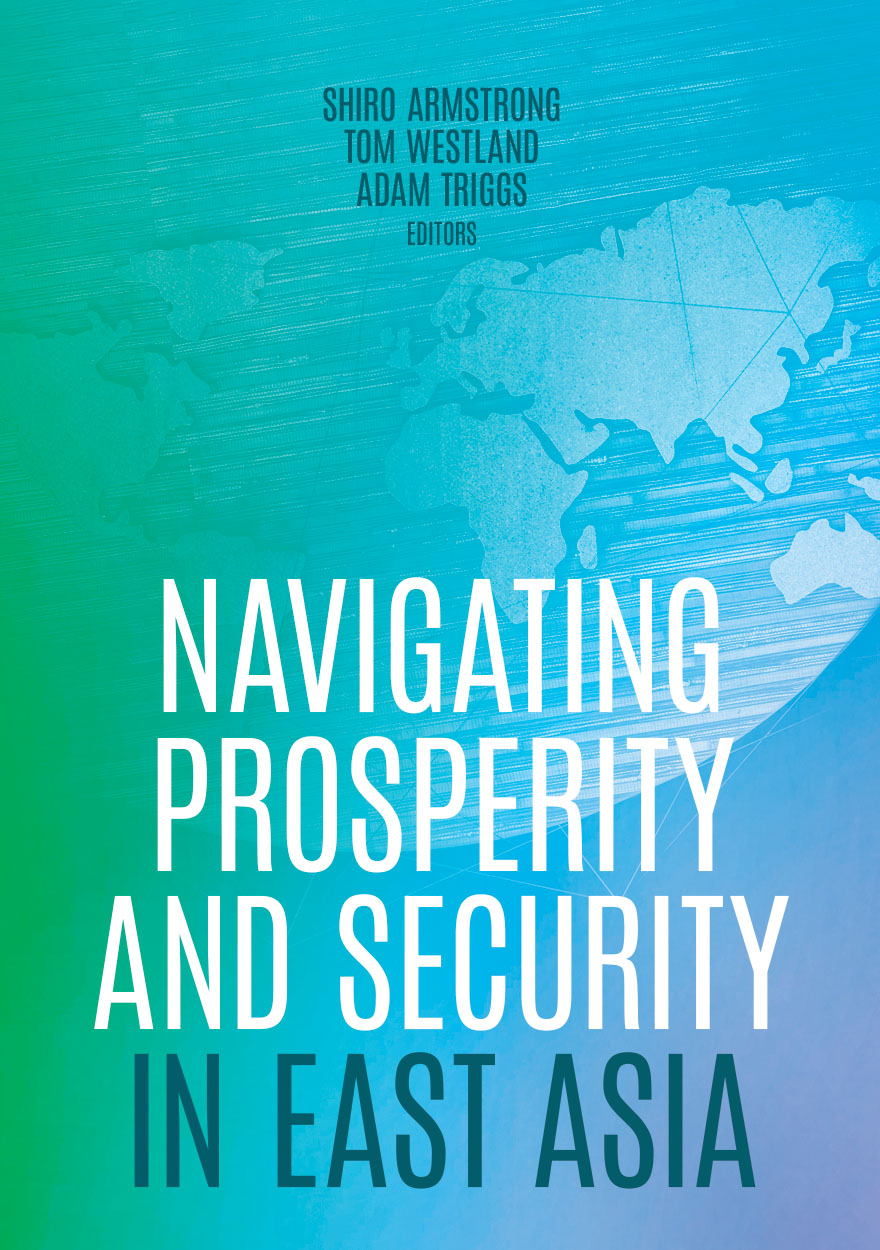Tom Westland
Tom Westland is an economic historian of Africa and Asia at Wageningen University & Research, the Netherlands, and a non-resident research fellow at the East Asian Bureau of Economic Research.

Navigating Prosperity and Security in East Asia »
Publication date: May 2023
The world’s two largest economies, the United States and China, are locked in a trade war, complicating policy choices internationally. These choices are sharper for the countries of East and Southeast Asia than they are elsewhere, because the multilateral rules-based economic order on which East Asian economic integration and cooperation is built is under threat.
Economic policy has never been separate from security considerations. For decades, the national security risks inherent in economic exchange have been mitigated under a US-led system that allowed the strengthening of economic ties, including between China and the rest of the world. But economics and security are increasingly entangled in a way that is damaging to both, creating a dangerous trade-off. Now, as global uncertainties grow, the risks of international exchange—rather than its benefits—are beginning to dominate the calculus for some policymakers.
Against this backdrop, how can Southeast Asian countries and US allies in Asia balance their security interests and their economic interests? And how can these countries, individually and collectively, broaden their policy options and deepen economic integration? This volume investigates the domestic and international dimensions of these questions.

Asian Economic Integration in an Era of Global Uncertainty »
Edited by: Shiro Armstrong, Tom Westland
Publication date: January 2018
The Pacific Trade and Development (PAFTAD) conference series has been at the forefront of analysing challenges facing the economies of East Asia and the Pacific since its first meeting in Tokyo in January 1968.
The 38th PAFTAD conference met at a key time to consider international economic integration. Earlier in the year, the people of the United Kingdom voted to leave the European Union and the United States elected Donald Trump as their next president on the back of an inward-looking ‘America First’ promise. Brexit and President Trump represent a growing, and worrying, trend towards protectionism in the North Atlantic countries that have led the process of globalisation since the end of the Second World War.
The chapters in the volume describe the state of play in Asian economic integration but, more importantly, look forward to the region’s future, and the role it might play in defending the global system that has underwritten its historic rise. Asia has the potential to stand as a bulwark against the dual threats of North Atlantic protectionism and slowing trade growth, but collective leadership will be needed regionally and difficult domestic reforms will be required in each country.



